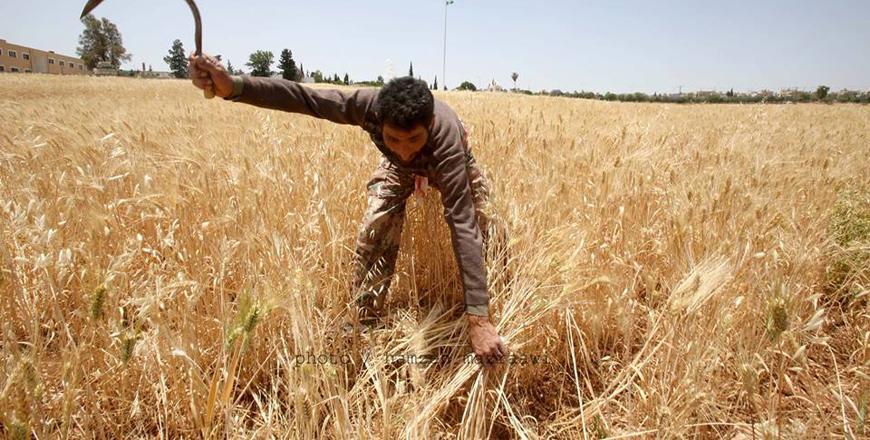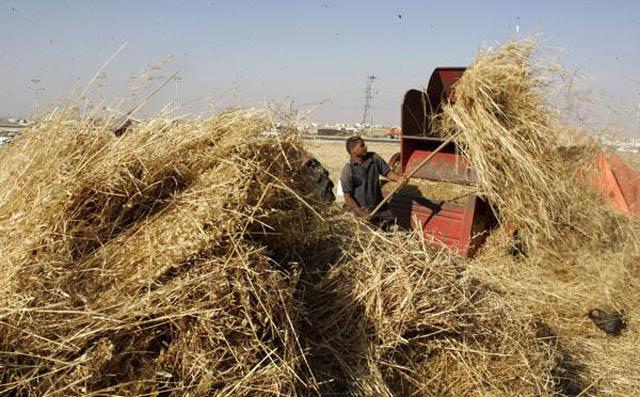You are here
Gov’t starts buying domestic wheat, barley production
By Hana Namrouqa - May 25,2016 - Last updated at May 25,2016

Photo taken on Tuesday shows a wheat field in the northern village of Hubras, Irbid Governorate (JT photo)
AMMAN – The government started this week buying wheat and barley from farmers at preferential prices in favour of producers, an official said Tuesday, adding that the process may last until August.
Last week, the government allocated JD24 million for buying wheat and barley from farmers this year, said Agriculture Ministry Spokesperson Nimer Haddadin, adding that the central committee for grains is expected to purchase a total of 70,000 tonnes of wheat and barley from the local market this year.
Three main centres in the northern, central and southern regions of the Kingdom have been designate to receive farmers’ wheat and barley harvests, Haddadin told The Jordan Times.
“The purchasing process started this week and will last until the end of the harvest season, which may last until August,” he said.
The centres receive two kinds of wheat from farmers, one for producing flour and the second, of a higher quality, will be used for seeds.
The government will also purchase two types of barley from farmers, one to be used for producing seeds, and the other as fodder for livestock, he added.
“The government will buy the wheat and barley harvest at preferential prices to encourage farmers to grow grains,” Haddadin indicated, explaining that the government will pay JD450 per tonne of wheat and JD370 per tonne of barley for the production of seeds for the next harvest season.
The price paid for flour wheat is JD370 per tonne, while barley used as fodder is bought at JD320, according to Haddadin.
Wheat was cultivated on 400,000 dunums of land for the 2015/2016 agricultural season, according to the official, who said that the rise in humidity levels and rain during the past two days will have no impact on wheat and barley because the crops have ripened.
Farmers grow wheat across the country, but grain is mainly cultivated in Irbid and Houran plains in the north, Madaba and Husban in the central region and Arrabeh in the southern Governorate of Karak.
The Kingdom, which consumes more than 80,000 tonnes of wheat per month, imports over 96 per cent of its wheat needs as domestic production covers only around 4 per cent of demand.
Jordan imports its needs of wheat from several countries including the Ukraine, Kazakhstan, Russia, Romania and the United States.
Related Articles
AMMAN — The government has started buying wheat and barley from farmers at preferential prices, an Agriculture Ministry official said on Wed
AMMAN — The government has raised the price at which it will buy wheat and barley from farmers in compensation for a “weak” production seaso
AMMAN — The Ministry of Agriculture has purchased around 21,000 tonnes of wheat and barley from farmers this year, an official said on Satur













